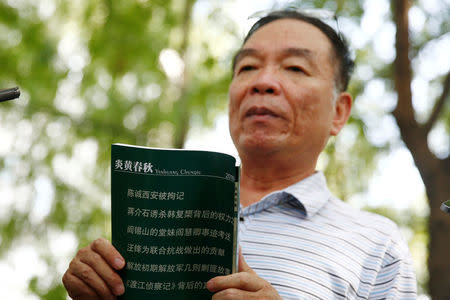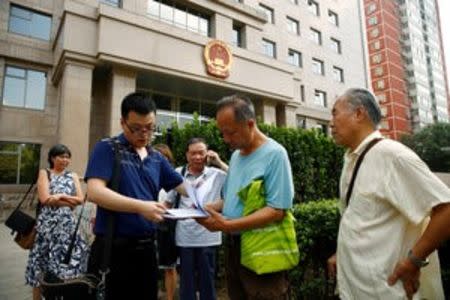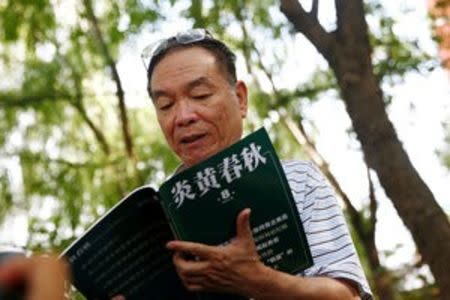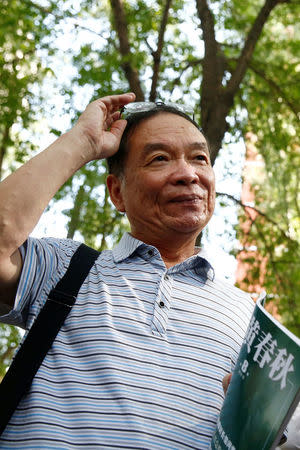China intellectuals sue over magazine, former editor loses appeal
BEIJING (Reuters) - A group of Chinese intellectuals sued on Tuesday over what they say is a leadership coup at a leading liberal magazine, as a former editor lost an appeal against a ruling ordering him to apologize for doubting details in a tale of wartime heroism. Since taking office more than three years ago, President Xi Jinping has cracked down on dissent, reining in the media and detaining dozens of rights activists. The government denies any abuse of human rights or freedom of expression, saying it is going after lawbreakers. Founded in 1991, the magazine, Yanhuang Chunqiu, also called China Through the Ages, is known for challenging party views on sensitive issues, such as political reform. But last month it halted publication after a government body forced a sudden reshuffle of its leadership team, which one of the magazine's lawyers has blamed on an effort to stifle voices that disagree with the ruling Communist Party. It has been seen as a forum for more reform-minded officials and claimed a circulation of about 200,000. Wang Yanjun, one of the magazine's former editors, said seven of them were suing the two new editors, Hao Qingjun and Jia Leilei, demanding they return the magazine to its former staff and saying its current operations were illegal. "They hijacked our official website, cracked the password, and are publishing their own illegal views there," Wang said. Hao declined to comment, while Reuters was not immediately able to locate a contact for Jia. The court did not answer calls seeking comment. The Chinese National Academy of Arts, which is technically in charge of the magazine, also did not answer calls. Separately, Hong Zhenkuai, a former editor at the magazine, lost an appeal against a June court case in which he was told to publicly apologize for two articles written in 2013 questioning the details of a well-known story about Communist soldiers fighting the Japanese in World War Two. Hong told Reuters he would not apologize and that he had defamed nobody. "My articles exposed the truth about a period of history," he said. "I did nothing illegal." Calls to the Beijing court which heard the appeal went unanswered. The office of the lawyer who represented the plaintiffs, Zhao Xiaolu, said Zhao was not accepting media interviews. Hong had been sued by relatives of the surviving soldiers. In the story, the five soldiers jumped off a cliff so the Japanese could not take them alive, though two of them lived. Hong had expressed doubt about how many Japanese the Chinese soldiers killed, how the two survived and where the cliff is. Party history is a sensitive subject in China as so much of the party's legitimacy rests on its position as claiming great historical achievements, such as leading China to victory over Japan during World War Two. (Reporting by Ben Blanchard and Joseph Campbell; Editing by Nick Macfie)




